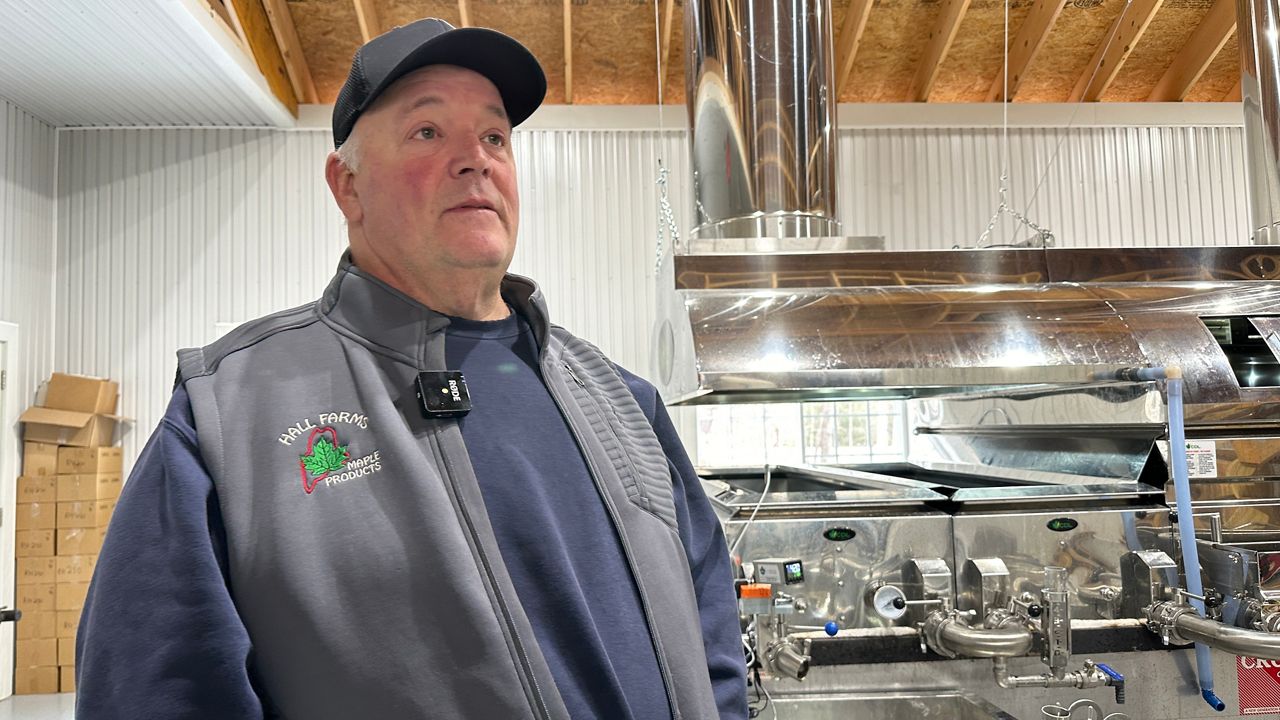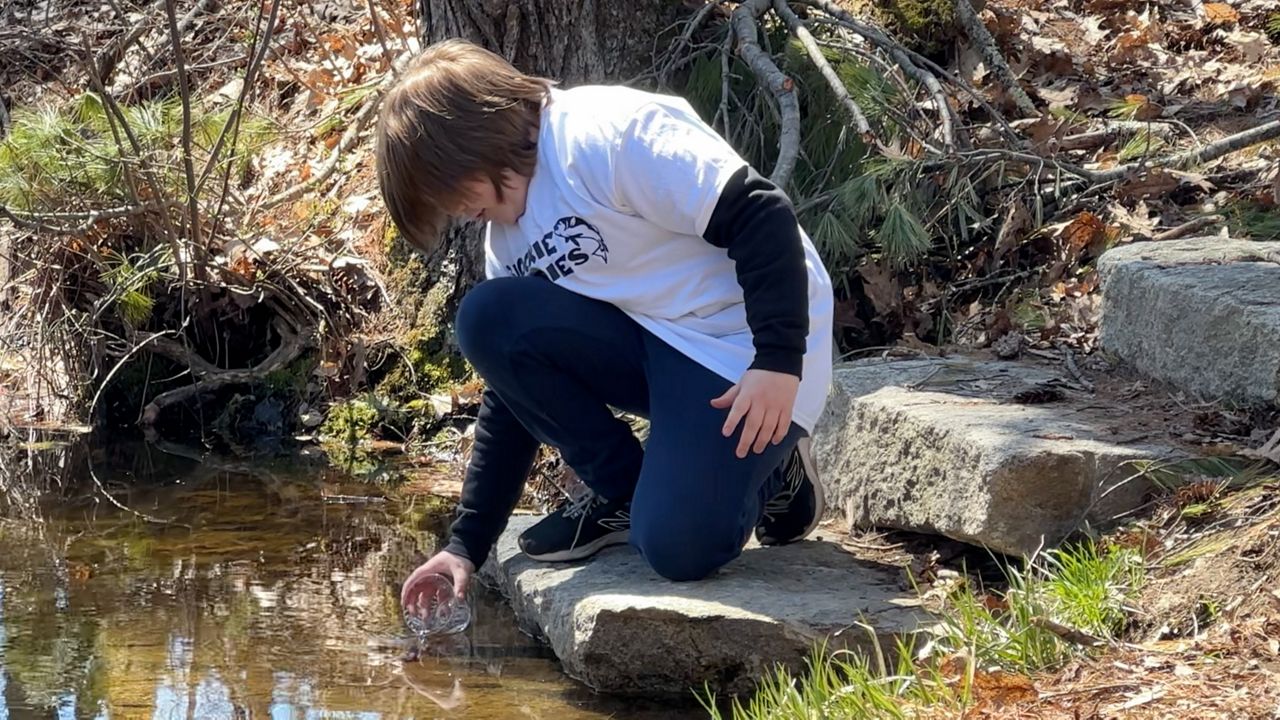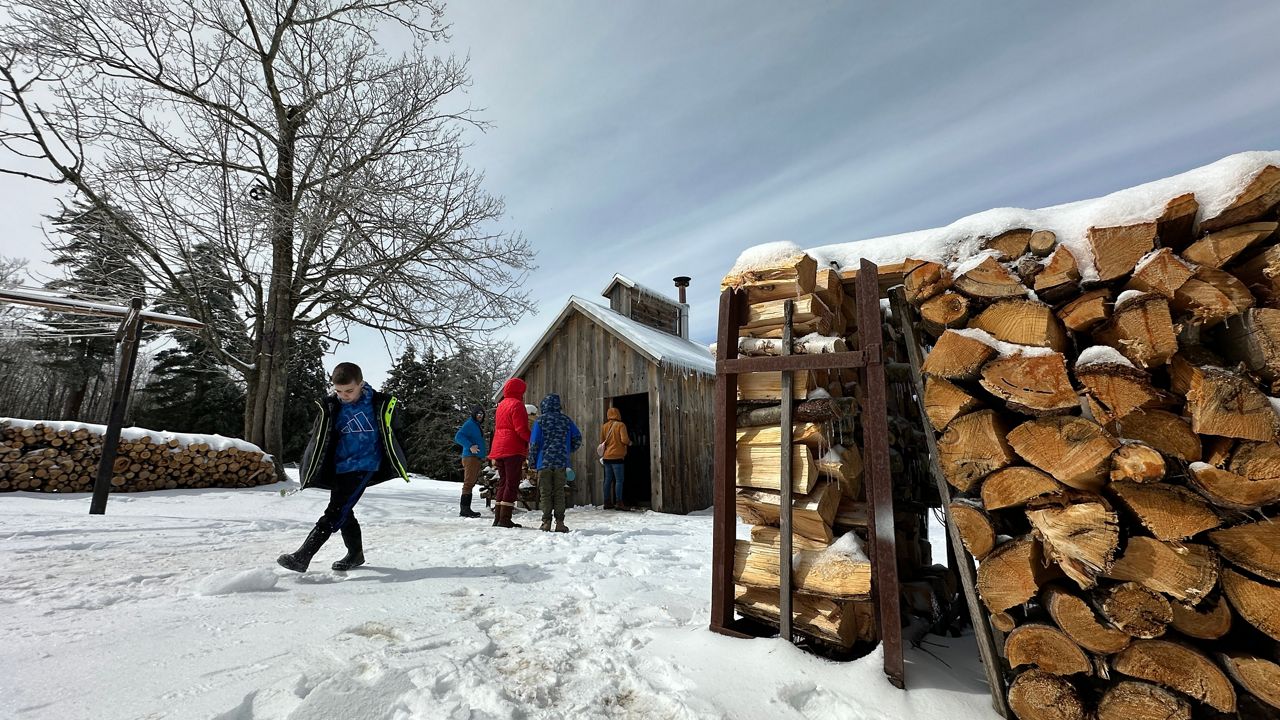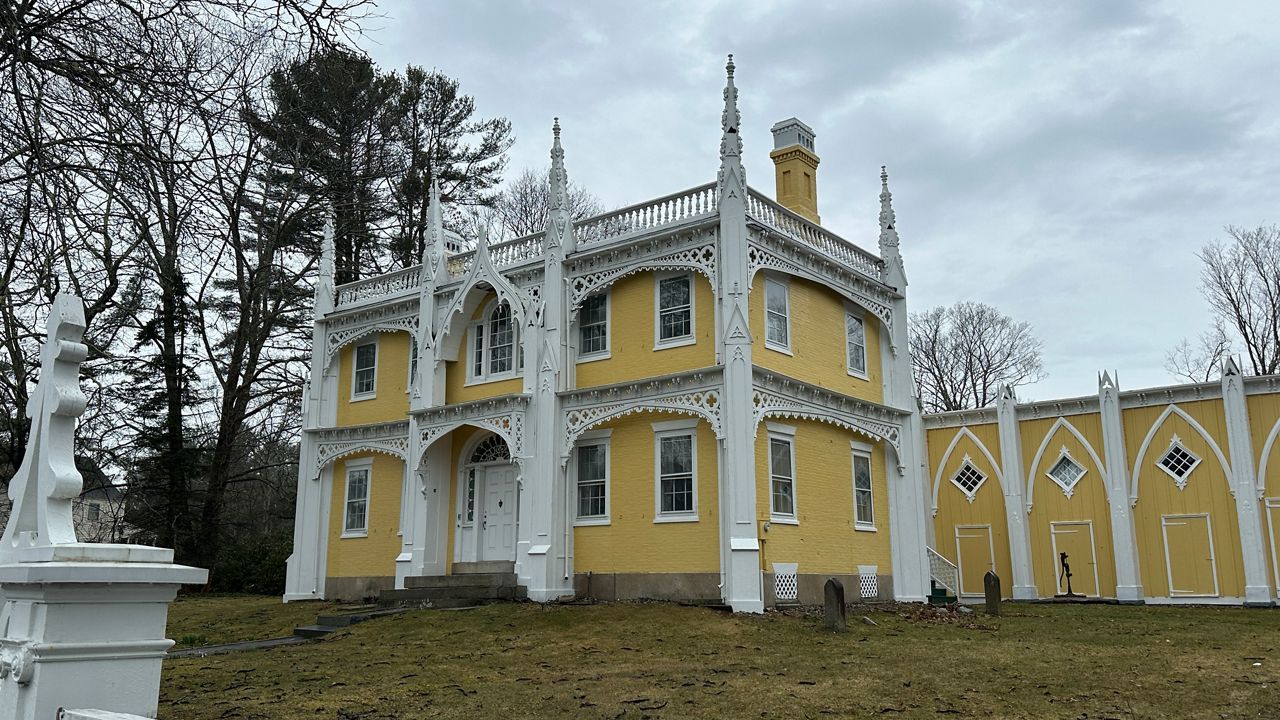This winter’s unusually warm weather added stress to Maine maple producers, but there should be plenty of syrup available for those who visit local farms on Maine Maple Sunday Weekend.
“As nerve-racking as it’s been, it’s held on and that quality will be pretty good,” Jason Lilley, the sustainable agriculture and maple industry educator at the University of Maine Cooperative Extension, said Tuesday. “If you are out at a sugarhouse this weekend, you’ll get 2024 syrup.”
For the 41st time, maple syrup producers are inviting the public to visit their sugar shacks Saturday and Sunday for demonstrations, games, snacks and tours. More than 100 producers will be open this weekend all across the state.
Maple syrup is a $55 million a year industry in Maine, which is behind only Vermont and New York when it comes to maple syrup production in the U.S. And Somerset County — where producers tap thousands of trees — is the largest maple syrup producing county in the country.
More than 450 producers are licensed to sell maple products in Maine, with the state making more than 575,000 gallons of syrup annually, according to the Maine Maple Producers Association.
The industry supports more than 830 full and part time jobs that generate more than $27 million in wages.
The industry is coming off a tough 2023 when a cold snap was followed by very warm spring weather, ending the season for many earlier than normal, Lilley told Spectrum News in January.
For many, yields were down by 50%.
But this year, the sap started flowing early, with many producers starting to see it in mid-February. That has them wondering how long the season will last, but Lilley said it’s too soon to tell if the total yield will be better or worse than recent years.
With a warmer than normal winter, Lilley has even seen different production levels for farms that are near each other. Whether they face north or south and the kinds of technology they use, also plays a role, he said.
In the Franklin County village of East Dixfield, the sap started flowing earlier this month, right on time in a normal season, said Rodney Hall of Hall Farms.
He and his son Caleb tap just over 11,000 trees.
“He said to me ‘dad, this is what a hundred miles on snowshoes taste like’,” Hall said this week. “There’s a lot of walking in the woods on snowshoes.”
Outside the sugarhouse, green and blue lines crisscross the woods to catch the sap as it seeps from the holes in the trees. A pump draws the sap into the building, where it will eventually become a pancake topper, sweetener drizzled on oatmeal or something to add to a cup of coffee.
Hall Farms will be open this weekend to welcome visitors to try their syrup and their value-added products like specialty barbecue sauce.
About 10 miles away, Black Acres Farm in Wilton will be open too, ready to show off the syrup that comes from their family farm.
“We started off with 35 buckets back in 1963,” said Russell Black, describing initial efforts as a hobby. “In the late 1970s, we started making more.”
In 2012, they built a sap house and are now trying to make money on the venture. They tap about 1,100 trees on 15 acres.
They burn wood to fire the evaporator that’s used to boil the water out of the sap. It takes three cords of wood to get 100 gallons of syrup, said Black, a state lawmaker who runs the business with his son James.
When Black and Hall talked about their trade earlier this week, they said while they are competitors, the small family farms support one another.
And they were united in their message to the public — beware of other maple syrups masquerading as a Maine product. Just because it says “Product of the USA” doesn’t mean it’s all American.
“Buy pure Maine maple syrup,” Hall said. “It doesn’t matter where you buy it. Just make sure you buy pure Maine maple syrup.”
A list of participating sugarhouses is available on the Maine Maple Producers Association website.









